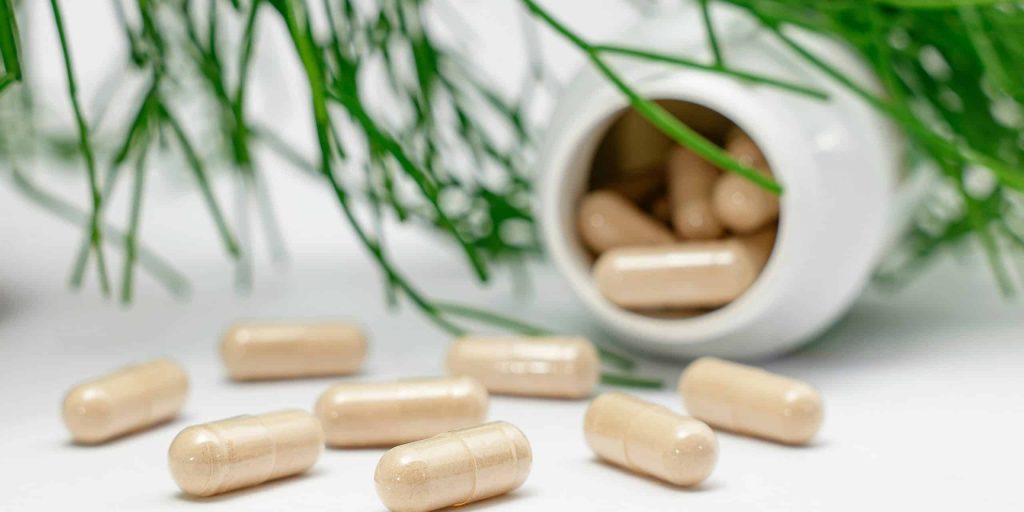Five Supplements for Everyday Health

Supplements can be a valuable addition to a standard health regimen in many individuals. However, these supplements can never substitute for a poor diet or lack of exercise. Here are a short list of supplements that can help you find a healthy balance in your pursuit of good health:
Magnesium- This supplement is essential to many chemical reactions in our body. The change in farming over the last few decades has resulted in a depletion of magnesium in our food supply. Loss of magnesium during sweating is also underestimated. The ability to effectively replace low potassium levels related to diuretic therapy is frequently impaired by magnesium deficiency. Heart arrhythmias are more common in magnesium-deficient individuals. Without underlying kidney disease, magnesium supplementation can be essential to your daily routine. Magnesium reduces muscle cramping, benefits bone health, assists with blood sugar management, has calming benefits, and is suitable for brain and sleep health. I also find this supplement to be an excellent treatment for hypertension. I recommend at least 400mg of magnesium glycinate or malate daily because they are well-absorbed and less likely to cause diarrhea. Citrate and oxide magnesium combinations tend to cause loose stools and are poorly absorbed. Magnesium threonate crosses the blood-brain barrier and can benefit sleep, especially before bed. The threonate version may also assist with memory and inflammatory conditions in the brain.
Vitamin D3- This supplement is a vital component of overall health. We convert this essential vitamin from cholesterol, requiring sunlight for production. Despite good nutrition, I am amazed at how many individuals are deficient in this vitamin. Bone health, heart, immunity, and mental health are all impacted by low Vitamin D3 levels. This is one of the four supplements I recommended during the COVID-19 epidemic to improve immune function. A daily dose of 5000 units should be adequate for most individuals, but you should check with your health care provider. I have found that the reported “normal” laboratory values highly underestimate our body’s actual needs.
Vitamin K2- This is the lesser-known supplement within the Vitamin K family. Bacteria primarily form this vitamin in the large intestine by digesting plant sources containing Vitamin K1. Vitamin K2 can also be found in fermented foods like natto (fermented soybeans popular in Japan) and sauerkraut. It is also found in eggs, yolks, and meat in small amounts. The primary forms of vitamin K2 are called MK4 and MK7. MK7 has a longer half-life in our body, but both variants support the management of calcium distribution. These vital nutrients direct calcium to bones and teeth while preventing calcium from being deposited in our arteries and soft tissues. A deficiency of these vitamins can lead to the accumulation of calcium within the coronary arteries and other arteries of our body. There is some evidence that supplementation with a combination of vitamin D3 and K2 can stabilize or even reduce the burden of calcium within the coronary arteries. An ongoing trial is to determine if long-term K2 supplementation may reduce calcium progression within the aortic valve of patients with aortic stenosis. People on oral blood thinners and an increased clotting risk may not be able to take this supplement because of the associated Vitamin K1, and advice from healthcare providers is necessary. I generally recommend at least 300ug of this supplement daily.
Fish oil- This supplement is valuable, especially for heart, brain, and joint health. DHA and EPA are essential to free fatty acids from cold water sources in oily fish. Salmon, Herring, Mackerel, and Sardines have the highest concentration of these fatty acids, while non-fish sources include flaxseeds, Chia, and Hemp seeds. The anti-inflammatory effects of fish oil reduce the impact of joint diseases and are also beneficial for brain health. Adequate doses of fish oil also lower triglycerides and appear to increase HDL modestly. This effect helps to improve the Triglyceride/HDL ratio, which is a good predictor of future cardiac events. Fish oil seems to reduce the impact of depression and has other beneficial effects on brain health. It has anti-inflammatory properties that alleviate many issues provoked by metabolic disorders such as diabetes, hypertension, and psoriasis. There appears to be a modest improvement in patients with hypertension when taking as little as 700 mg of fish oil. It also has been reported to raise free testosterone levels in young men. I recommend at least 2.0 grams of combined DHA and EPA daily, but it is essential to clear this dose with your healthcare provider. I use liquid fish oil in concentrated form. It is palatable and easy to take.
Creatine– This supplement has been around for a long time and has previously been stigmatized due to heavy use by weightlifters and athletes. Recent studies confirm that low-dose creatine monohydrate at 5 grams daily benefits muscle mass and cognition in older patients. The side effects are minimal at this dose in otherwise healthy individuals. Loss of muscle mass is a significant problem in the aging population and is associated with decreased survival. The use of creatine supplementation allows for muscle mass preservation when combined with regular weightlifting. The added benefit of enhancing cognitive performance makes this supplement a useful and valuable addition to daily nutrition.
This list of supplements is brief and limited in scope, but I believe that using these particular nutrients can benefit most individuals striving for a healthier life. In addition, plant-based individuals may have difficulty achieving adequate doses of some of these supplements from plants alone. Judicious supplementation using creatine, Vitamin D3, Vitamin K2, and DHA may be reasonable for these people.
Please let me know if you have any questions or comments about this list.
To you better health!
